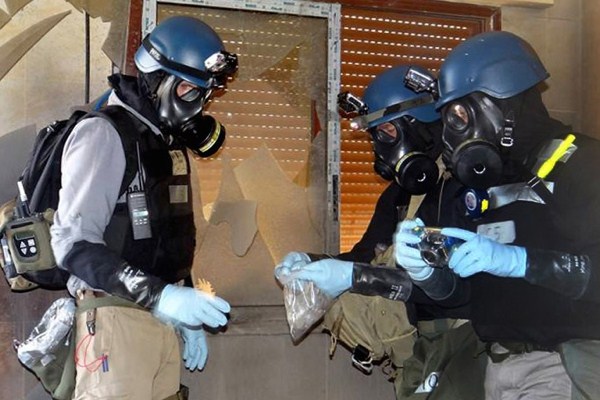A series of recent media reports have refocused attention on chemical weapons and highlighted the threat presented by their possible use by terrorists. Stories about the so-called Islamic State (IS) seizing the remains of Saddam Hussein’s chemical weapons stockpile in Iraq; the large number of abandoned chemical weapons that U.S soldiers discovered during the post-Saddam occupation of Iraq; and the continued cases of chemicals being used as weapons of war in Syria have all generated concern and alarm. But they also highlight the ways in which the international chemical weapons regime must be updated to reflect the current nature of the threats posed by both chemical weapons and chemicals used as weapons.
Until now, nation states have been the main possessors and users of chemical weapons. They began employing them in battle during World War I and have used them intermittently since then, sometimes against each other, but most often against ethnic minorities and other substate actors. For countries that lack nuclear arsenals, they are “the poor man’s atomic bomb,” offering a potential strategic deterrent.
After a long struggle, however, the Chemical Weapons Convention (CWC) and the Nobel Prize-winning Organization for the Prohibition of Chemical Weapons (OPCW) has almost succeeded in destroying all major national government stockpiles of chemical weapons. Of 193 nation states recognized by the United Nations, 190 have joined the convention and complied with its provisions. Although North Korea has declined to join the convention, the other states thought to have chemical weapons have met their chemical weapons disarmament obligations; Russia and the United States are in the process of doing so, eliminating their Cold-War-era stockpiles as well as their production and storage facilities. The challenge in coming years will be to refocus the CWC and OPCW to better counter the threat of chemical weapons terrorism.

